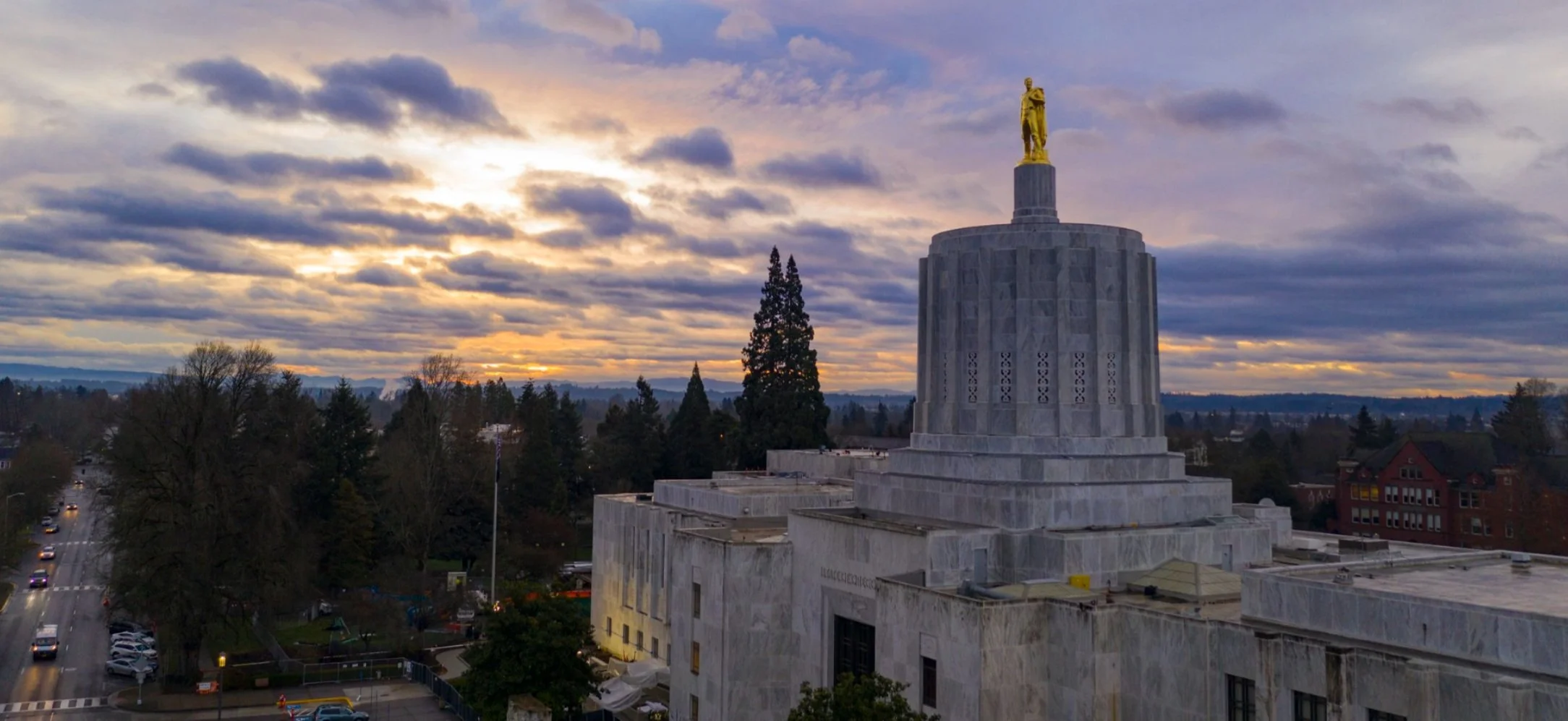And that’s a wrap! Oregon’s legislative session comes to a close
Wrapping up with good reason to celebrate
LEGISLATIVE LIAISONS
Nathan Hovekamp
Central Oregon LandWatch
Naturalist & Legislative Liason
For the last 32 days, LandWatch has been actively engaged in the fast-paced, high-stakes game in Salem.
Chris Parta
Parta Oregon
Principal Government Relations
The 2022 session of the Oregon State Legislative Assembly that convened on February 1 just adjourned sine die on March 4. We’ve spent the month conducting background research on bills, analyzing likely impacts, coordinating with partner organizations, conversing directly with legislators, providing testimony at legislative hearings, and tracking the progress of bills.
We’re happy to report back with good news from the Capitol.
At the beginning of the session, roughly 275 bills were introduced. We initially identified 27 of particular interest. Throughout the session, as bills died, this list narrowed down to 17. We were pleased to see our highest priority bills, addressing wildlife, housing, and other issues, almost entirely go our way.
Wins for Wildlife
Protecting predators
HB (House Bill) 4080 would have formed “predator damage control districts” as a funding mechanism to kill bears, wolves, coyotes, foxes, cougars, bobcats, beavers, otters, raccoons, and other wildlife. This kind of lethal “control” of native wildlife, much of it on public lands, is largely unnecessary, ineffective, and wasteful - even macabre. Fortunately, the bill died.
Rethinking wolf management
HB 4127 would have increased funding to compensate for livestock loss due to wolves beyond the funding already available. In a theatrical move, one of the bill’s sponsors even introduced a cynical amendment to relocate wolves to Portland. Oregon has seen a significant rise in illegal wolf killings over the past year, and it is important we shape the state’s wolf management program to consider the important issues around habitat, conservation, and biology rather than fund killing operations. Fortunately, this bill died.
Bill passed! The Wildlife Crossings Investment Act
HB 4130A appropriates funding to the Oregon Department of Transportation for wildlife passage projects, like highway underpasses and overpasses, that significantly reduce wildlife-vehicle collisions. This bill enjoyed broad support, as it would reduce human death and injury and millions of dollars of property damage from these collisions every year, as well as improve habitat connectivity and save thousands of deer, elk, and other wildlife lost on Oregon highways. In the end, the substance of the bill was rolled into the budget bill, HB 5202 (Section 342), which passed! Read our testimony here.
Earlier this month, we called on you to take action and write into your representatives. Dozens of you did and we want to thank you for taking action! Your perspectives mattered and help push this bill over the finish line.
Hope for Oregon’s Housing Needs
Preventing sprawl, promoting public voices
HB 4118 would have bypassed Oregon’s protective land use laws and public processes to permit residential development to sprawl out beyond urban growth boundaries. A proposed task force with biased membership could undermine land use protections, facilitate costly sprawl, and shut out the public from planning its own communities. Fortunately, this bill died. Read our testimony here.
Bill passed! A coordinated response to houselessness
HB 4123A provides grants for coordinated homeless response systems across various agencies and providers. It includes funds dedicated to coordination between Deschutes County and the cities of Bend, La Pine, Redmond, and Sisters to address this pressing issue. We are pleased to have supported the successful passage of this important bill! Read our testimony here.
Pathways for building better communities
SB (Senate Bill) 1537 would have imposed complex, poorly defined requirements for the preparation of housing cost impact statements across an expanded list of state agencies. It would have made it difficult for local communities to advance critical regulations to improve livelihoods, such as energy efficiency, wildfire prevention, safety, climate action, and more. For instance, this bill would have undermined newly developed standards for protecting homes against wildfire. Fortunately, this bill died. Read our testimony here.
A victory for forests and planning for fire
SB 1573 would have directed additional funding to industrial logging and thinning operations. While the bill was put forward under the guise of lessening the risk of property damage from wildfire, there was no focus on operations or other wildfire mitigation in the WUI (wildland-urban interface), where it is actually needed. As a result, this bill would be ineffective at best and detrimental to forest health at worst. Fortunately, this bill died. Read our testimony here.
Looking Forward
There were several other bills that ultimately didn’t pass, but were interesting concepts that we hope come back in one form or another in the next legislative session. For example, we saw good ideas for addressing housing challenges and a framework for expanding carbon sequestration to help mitigate climate change.
Until the next session begins in 2023, LandWatch will be continuing with our state legislative program. Our efforts now shift toward long-term objectives, proactive strategies, and strengthening our relationships with decision-makers, partnerships with sister organizations, and networking and research on issues likely to arise in the next session.
Support our work at the Capitol
Our sincere appreciation and congratulations go to everyone who helped with a successful 2022 legislative session! We are committed in our legislative advocacy as in all our work to conserve our region’s ecosystems, wildlife habitat, and working rural lands balanced with a responsible, sustainable approach to planning and fostering thriving communities.
Our legislative advocacy work is made possible by your financial support. Your gift to LandWatch keeps us working behind-the-scenes year around to ensure our elected leaders at the State Capitol are taking the interests of Central Oregon to heart.





